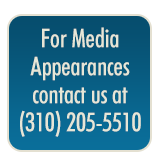Articles |
October 26, 2011 Is It True That Image Is Everything?Read what I have to say about managing your personal brand while remaining authentic – Marshall Hennington, Ph.D. www.diversity-enterprises.com or www.juryconsulting.com Managing your personal brand: First impressions still countBy Brett Graff For those in the workplace or looking to land a job, what others think does matter. The key: Thoughtfully managing your personal brand while remaining authentic. As Miami-Dade Community College student Patrick Chalvire prepares his cover letter for an internship he’s hoping to land, something crosses his mind: he’d better wear a long-sleeve shirt to the interview. That’s because Chalvire learned shortly after getting his two tattoos that people are quick to stereotype candidates displaying permanent body art. And despite his arm being designed to honor his beloved mother, the ink forges on others an unpleasant impression, he says. “Just having a tattoo, people think that person is a hoodlum or a slacker,” he says. “But I have goals. First to finish school and then to work in television or radio.” Tattoos along with most other human qualities — from the ones we chose to the ones we inherit — can factor into the professional images we hold, says researcher and professor at Antioch University, Dr. Laura Morgan Roberts. And that those personas correlate strongly with our salaries. She says traits such as age, gender or even whether we’re working mothers can either help or hurt us in business. But the way things go depends entirely on us — what we choose to flaunt or downplay in the delicate process of crafting of our professional characters. Critics of Morgan’s research say that defining ourselves by anything other than our skills and knowledge will most surely backfire. But all experts agree that taking control of how bosses, clients and colleagues view us is better than letting casual circumstances shape our reputations. “People form judgments of competence, character and commitment within seconds of encountering you,” says Roberts, who plowed through piles of published research and conducted her own interviews on stereotypes. “And those impressions can have a tremendous impact on whether you’re considered for a promotion or whether you’re viewed as a leader. There are very real financial consequences associated with these assessments.” We’ve all been told since our first job search that combing our hair and tucking in our shirts will be a critical representation of our performance. But Roberts says it goes further. She says that while we as individuals believe we defy any stereotypes applied to our groups — just as Chalvire explains how he’s ambitious regardless of having a tattoo — we’re fully aware of the typecasts that could be swirling around about us. And we should first consider our own unique goals before consciously confronting or concealing certain aspects of ourselves for the sake of career management. “Deciding that you aren’t going to pay attention to what other people say about you on the surface seems like a healthy tactic,” Roberts says. “But if you go too far with that you will suffer consequences for your career.” Working mothers, Roberts says, are often inappropriately viewed as less committed to their careers. So while it’s perfectly fine to drop by your child’s school during lunch, you’ll want to spend any moments you have with management highlighting your professional accomplishments — not your time out of the office. Meanwhile, a young executive may want to address age head on, for example, announcing he’ll be conducting the seminar, rather than waiting for a participant to confuse him for a student. And older workers — who are too often typecast as being out of touch with technology — should embrace younger colleagues, rather than running themselves ragged trying to establish their seniority. Women are often seen as caring, so if someone’s intimidated, they might consider asking a concerned question. “It’s about managing people’s impressions,” Roberts says. “And educating people on the positive aspects of your identity group.” But don’t be surprised if that strategy backfires, costing you more money than it earns, says Dr. Marshall Hennington, owner of North Miami cultural sensitivity training company Diversity Enterprises. He says the idea of people entering into the workplace holding stereotypes is in itself a stereotype. And our obligation as employees, he says, is to eliminate them all. “Stereotypes are based on fear, misinformation and ignorance,” Hennington says. “You don’t need to perpetuate a stereotype to gain people’s respect or an advantage in anything. You have an obligation to be yourself and highlight your unique qualities.” Those, says Michelle Villalobos of Mivista Consulting, are going to be your strongest assets for personal brand management. After defining who you are, determine your audience — if you work in a company it will be your colleagues and executives — and deploy your strategy accordingly. Volunteer for high profile tasks, strategically mention your accomplishments and seek out a mentor. “Stereotypes are almost irrelevant,” she says. “If you take control of your brand you can weather any storm, whether it’s a recession or a new job.” And those old adages about combed hair and ironed clothes? They’re around for a good reason, says Susan Bigsby, a certified personal image consultant whose client list includes Florida Power and Light, Northern Trust and Mount Sinai Medical Center. But remember also to wear a smile and relay confidence. Stand up straight and thoroughly know your product or service. “Many professionals have never paid attention to themselves,” she says. “They haven’t packaged their own product properly. We have to market ourselves in a visual way just as much as a jar of spaghetti sauce.”
|

View Spanish Language Version

